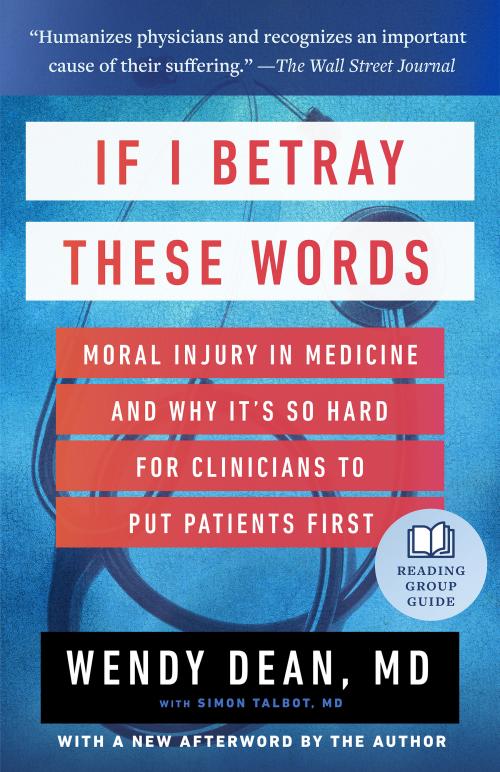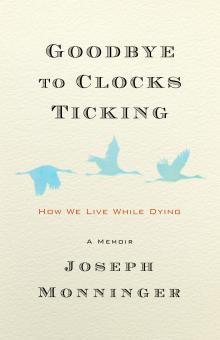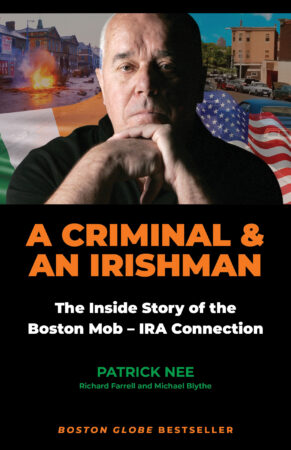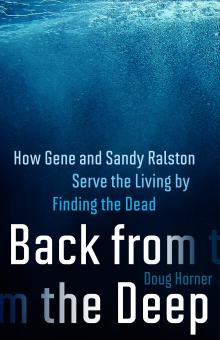Excerpt
Author’s Note The deadline for choosing a title for this book arrived unexpectedly as I was deep in writing chapter 6, which is about a doctor who takes his own life. In a flurry of communications with the publisher and editor that grew more frantic by the hour, we tried to distill the essence of the work to a word or two. The collected stories deserved exactly the right title, but despair about a flurry of imperfect ideas melded with the grief I was feeling about the character in chapter 6, and I was lost.
As I often do when stuck in a morass, I paused and returned to the source document, so to speak — to the oath we take as physicians, in its many forms. This oath represents what each of us believes is our duty to society in joining this profession and embarking on a lifetime of tending to strangers in their moments of greatest vulnerability and need. It is the commitment that calls us to be our best selves.
I read the Declaration of Geneva of the World Medical Association, the Oath of the Healer, the American Medical Association Code of Medical Ethics, the Osteopathic Oath, the Maimonides Prayer, and many versions of the Hippocratic Oath. Similar themes ran through them all: gratitude toward teachers, a commitment to lifelong learning, an obligation to nurture the next generation, selflessness, one’s duty to patients above all else, honesty, humility, confidentiality, love. But when I discovered a 2010 translation of the Hippocratic Oath by Amelia Arenas, published in Boston University’s journal Arion, I found the title.
This version of the oath echoes the themes of all the rest, but the last lines took my breath away:
I pray that the attention I give to those who put themselves in my hands be rewarded with happiness. And in honor of the knowledge I’ve received from my teachers, I swear to care for anyone who suffers, prince or slave.
If I ever break this oath, let my gods take away my knowledge of this art and my own health.
Here speaks a citizen, a servant of people. May I be destroyed if I betray these words.
The covenant we make is not simply about how we will do a job, it is also about who we will be when we don the mantel of “physician.” It proscribes our conduct, calibrates our moral compass, and entwines both with our identity. Betraying these words, then, forsakes our identity, which can unmoor us and threaten our dissolution.
In standing up to moral injury and fighting for our oaths, we are fighting for our patients as if our lives depended on it. Because, figuratively, and too often literally, they do.
I am humbled by and grateful to all the medical professionals who have spoken up against their destruction, and to those who find the courage to do so in the future.
Introduction – What Beer and Modern Healthcare Have in Common
Dr. Mike Hilden answered the knock on his front door in the fall of 2012 to find two Federal Bureau of Investigation (FBI) agents waiting to speak with him. The FBI hadn’t come to Carlisle, a quiet college town of twenty thousand people in central Pennsylvania, for drug dealers or old-school racketeers. They were talking to doctors, nurses, and administrators at the local hospital, tipped off by whistleblowers who leveled fraud allegations at Health Management Associates (HMA), the fourth-largest hospital corporation in the US, and the owner of Carlisle Regional Medical Center.
Dr. Hilden had been a hospitalist at Carlisle Regional for more than a decade, since before the board of the nonprofit community hospital sold out to HMA. Now it was one of seventy-one hospitals in a nationwide for-profit enterprise that was being accused of coercing physicians to forsake their medical judgment — to hospitalize patients who didn’t meet insurance criteria, to order more tests than their conditions required, and to keep them in the hospital longer than necessary — to increase profits.
Carlisle, established by Scots Irish in the mid-eighteenth century, had an early history fraught with conflict. The Carlisle Barracks, now home to the United States Army War College, served as supply headquarters in the Revolutionary War. George Washington reviewed troops there before sending them west to put down the Whiskey Rebellion, and downtown buildings still bear the scars of a three-day occupation by Robert E. Lee during the Civil War. But since stopping the northward advance of the Confederate army, the town had been a quiet place. Unfortunately, though the community didn’t know it yet, the fight in healthcare over profits, patients, and physician autonomy, waged by ever-larger corporations, was coming to them.
A key figure in the FBI investigation was someone few people in Carlisle had ever heard of: HMA board chairman William Schoen. Just a few months earlier, at the company’s annual shareholders’ meeting at a Ritz-Carlton resort in Naples, Florida, Schoen defended himself against a few shareholders agitating for his ouster. The disgruntled shareholders claimed that HMA failed to hold its executives to the same standards as competing corporations, and that its insufficient attention to compliance with federal regulations put the corporation at risk.
Under Schoen, HMA’s only criterion for executive bonuses was a single financial measure: EBITDA (earnings before interest, taxes, depreciation, and amortization), a measure that isn’t one of the generally accepted accounting principles used by publicly traded companies in financial statements. Moreover, most large, publicly traded healthcare corporations also included at least one quality indicator, such as readmission rates, hospital-acquired infections, or patient satisfaction, in bonus calculations. Charlie Munger, vice president of Warren Buffett’s Berkshire Hathaway, in his 2020 address to the Daily Journal shareholders meeting, referred to EBITDA as “bullshit earnings,” a measure so manipulable it deserves little credence. Shareholders were concerned that HMA executives were manipulating the numbers to line their own pockets rather than creating real value for investors, while a weak board, whose members were handpicked by Schoen and secure in their tenure, was doing nothing about it.
During his time as chief executive officer and board chairman, Schoen had grown the organization from a small regional player to a Fortune 500 company with national reach and billions in revenue. His responsibility was to his shareholders, not to clinicians, and not to patients, who were both free to go elsewhere if they didn’t like the conditions at his hospitals. Schoen believed that his compensation, and that of his senior team, was hardly out of line with their success, or with their peers in the industry.
At the meeting, HMA’s vice president of financial relations at the time, John Merriwether, denied the critics’ contentions: “To imply that we don’t take quality as seriously as we should, that’s not fair. If you don’t provide good quality care, you won’t have good financial performance.” But HMA specifically targeted markets where it knew there was little or no competition, so patients at HMA hospitals could not vote with their feet or their healthcare dollars. The Center for American Progress found that rural emergency rooms in hospitals like those HMA acquired were, on average, twenty-two miles from the next nearest emergency room, a distance that could mean the difference between life and death.
Ultimately, the shareholders weren’t swayed by the critics. Schoen, the board, and the compensation structure all remained unchanged. But the Health Care Fraud Prevention and Enforcement Action Team, a joint effort by the US Department of Justice and the US secretary of health and human services, was just getting started with HMA. Between 2009 and 2011, whistleblowers filed eight lawsuits against the corporation, alleging fraud. Agents from the FBI and Department of Justice spent two years talking with hundreds of employees across at least eight states, and by the time the investigation was over, HMA agreed to pay a $260 million settlement for forcing doctors, under threat of losing their jobs, to provide unnecessary care against their best judgment and training. Dr. Hilden was vindicated, but he and his partners, like so many other physicians in the grip of increasingly corporatized healthcare, were looking for new jobs — ones where they could practice medicine as they had been trained to do, not as corporate growth plans told them they must.





